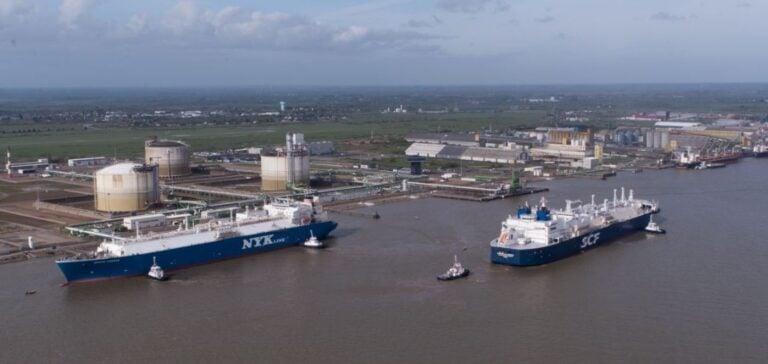Work begins at the port of Stade to prepare for the opening of the Hanseatic Energy Hub (HEH), a €1.6 billion project designed to meet over 15% of Germany’s current LNG demand. The import terminal, with a total annual capacity of 13.3 billion cubic meters of natural gas, will play a central role in securingGermany’s energy supply, while supporting the transition to low-carbon energy sources.
Meeting growing demand for LNG
The launch of the HEH comes at a time when global demand for LNG is set to grow considerably over the coming decades. According to Shell’s LNG Outlook 2024 report, the LNG market is expected to reach 685 million tonnes in 2040, up from 404 million tonnes in 2023. This rise in demand, coupled with limited supply, is keeping LNG prices high, prompting European countries to build more LNG hubs and terminals to boost their energy security and advance their decarbonization objectives.
A long-term commitment to the energy transition
Three major European energy companies – EnBW, SEFE and ČEZ – have already reserved 90% of the HEH’s capacity for the long term, with the remainder earmarked for short-term operations. The hub will thus play a key role not only in Germany’s immediate energy supply, but also in the long-term transition to more sustainable energy sources for Germany and Europe.
The strategic role of the port of Stade
The port of Stade, with direct access to the North Sea, is Lower Saxony’s third-largest port in terms of cargo handling volume. In 2022, it welcomed 1,000 ship calls and handled 5.6 million tonnes of cargo. GAC, a company specializing in marine services, recognized the strategic importance of Stade and opened a new office in January to meet the growing demand for LNG. According to Thies Lennart Holm, Managing Director of GAC Germany, this new location enables the company to directly support the HEH project and meet the growing needs of customers in the gas industry.
A response to the challenges of LNG supply
By increasing its gas capacity and multiplying its storage facilities, Germany is taking a multi-faceted approach to relieving the pressure on LNG supplies in Europe. The port of Stade plays a central role in this strategy, particularly with the opening of the HEH. The inauguration of the Hanseatic Energy Hub in Stade represents a major step forward for Germany in its quest for energy security and the transition to renewable energies.






















